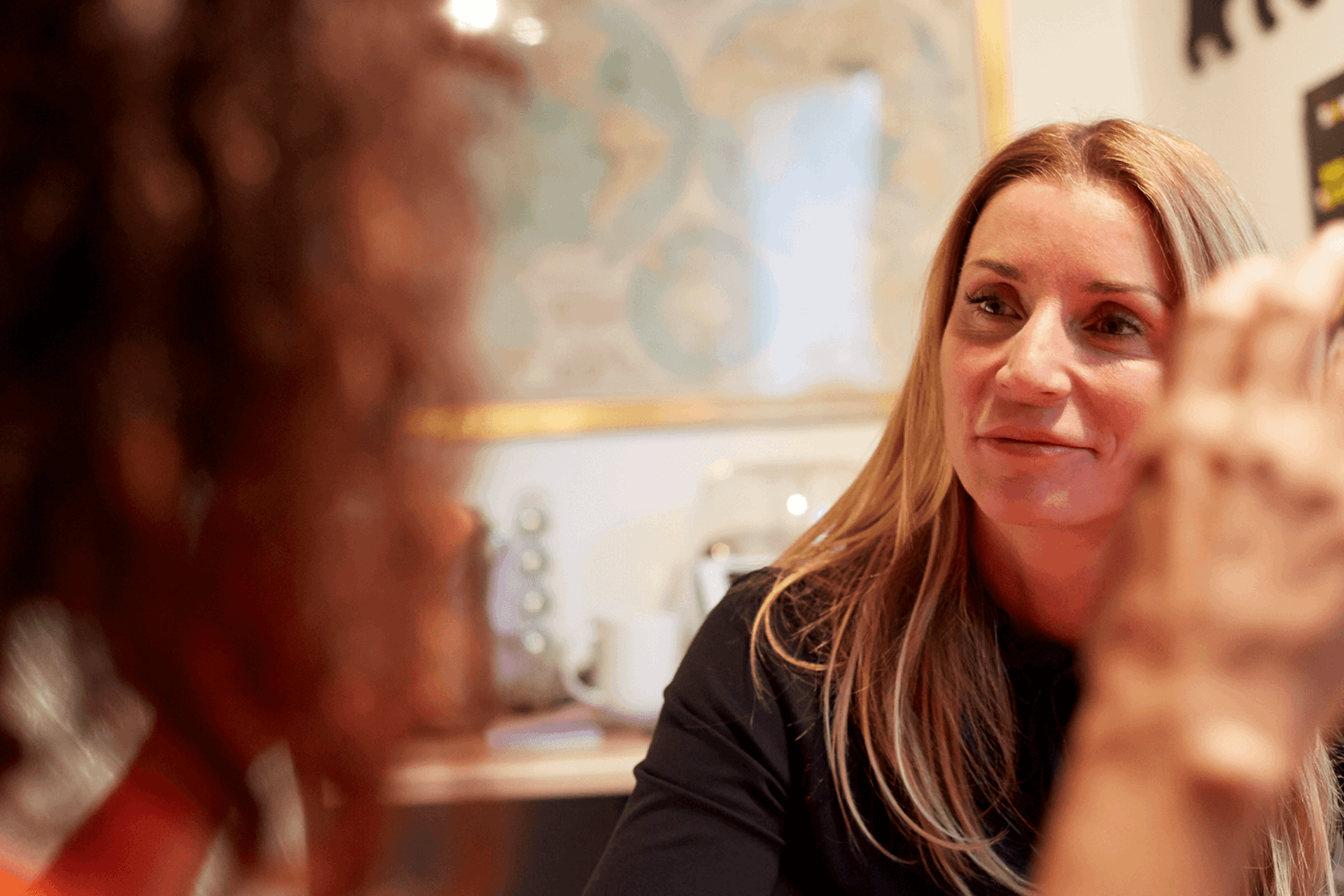
Gender identity is part of our deep-rooted sense of self. Having a sense of identity in this way, and being seen and accepted by others as who we are, is really important for our mental health, wellbeing and resilience.
If your child is exploring their gender identity, or is transgender, non-binary or something else, you may have lots of questions as a parent – and may be feeling unsure about how you can support them. Here we outline what gender identity is, how it can affect our mental health, and how you can support your child and find professional help if they’re struggling.
What is gender identity?
Gender identity is how a person describes their gender. For example, they might identify as a woman or girl, non-binary, transgender, a man or boy, gender fluid, or something different.
Gender identity is different to sex, which describes physical and biological body parts (like the penis, vagina, different hormones or breasts). A child's sex is usually assigned at birth on the basis of these physical body parts, but their gender may be different to the sex they have been assigned.
These are some words people use when talking about gender identity:
-
Cisgender/cis
Someone who is the same gender as the sex they were assigned at birth.
-
Transgender
Someone whose gender is different from their sex at birth.
-
Non-binary/genderqueer/gender fluid
These are gender identities that sit within, outside of, across or between ‘male’ and ‘female'.
-
Pronouns
These are the terms we use to refer to someone, e.g. ‘he’, ‘she’, ‘they’.
-
Intersex/differences in sex development (DSD)
This is an umbrella term for a variety of biological conditions that affect a person’s sex development. This can include differences on the inside and outside of the body, including differences in the development of some hormones or the reproductive organs or genitals. This does not define gender identity. A person who has a DSD/is intersex may identify as male, female, non-binary or something else.
Your child may use different words to describe their gender. For more information about the different terms and gender identities, visit Stonewall.
If your child is questioning their gender and they are being supported by professionals, you may also hear doctors using terms such as gender dysphoria. This term describes the distress a young person may feel if their gender identity is different to their sex at birth.
Questions around gender identity can emerge at any time, and there is a wide range of reported experiences. As a parent, you may have been aware that your child has been questioning their gender identity for a long time, or you may have only found out about this recently. For some people, their gender identity, and the words they use to describe it, can also change or develop over time.

How can gender identity affect mental health?
Every individual’s experience of gender identity is different. For some young people, experiences around gender identity may affect their mental health in different ways.
These can include:
- Finding things confusing, stressful or worrying if they are questioning their gender and feeling unsure at the moment about who they are.
- Feeling distressed when other people do not recognise their gender identity – for example viewing or referring to them as a gender that doesn’t feel right.
- Struggling with their body image and how they feel in their own skin if their body does not match their gender.
- Struggling with difficult feelings, or not feeling able to be who they are, if they have experienced stigma, bullying, rejection or hostility from others – which many people unfortunately do.
- Not feeling safe to share or express their gender identity in some groups or situations.

These and other experiences can sometimes lead to feelings of:
- anxiety
- isolation
- low mood or depression
- anger
- wanting to self-harm, or having suicidal thoughts
How can I support my child with their gender identity?
There are things you can do to help your child and make sure they have the right support around them.
Show your child explicitly that you accept them and want to support them. If they are feeling confused about - or coming to terms with - their gender identity, fear of negative judgement and rejection can be huge obstacles to seeking support and talking to you.
When they are ready to talk, focus on listening and finding out what it's like for them.
If your child is questioning their gender, it doesn’t necessarily mean that they are trans - but they may be. Remember that it's a journey of discovery and expression, and that can take time.
Try to understand as much as you can about what your child is going through, including looking at what support is available at your child's school or from local services. You may need to be their advocate in talking to school, college or health professionals, if and when the time is right.
Communication is everything, and being open-minded is the best approach. Whatever happens, they are still your child.
Whether it's 'he'/'him', 'she'/'her' or something else, address them by their preferred pronouns. If you make a mistake, correct yourself or allow yourself to be corrected, and continue to try. This will show your child that you are making an effort, showing them respect, and doing your best to adapt to their preferences.
It may feel uncomfortable for them to be asked very personal, intimate or intrusive questions – so ask if it’s okay to ask, and respect the answer. Think about how you might feel if your own parent asked you something deeply personal about yourself.
Being part of a group may help to reduce your child's sense of isolation - allowing them to meet people with similar experiences and a shared understanding of what they're going through. Groups can offer a safe space and a sense of community, whether in person or online. A good place to start is seeing if there are any LGBTQIA+ youth groups in your local area or at your child's school.
It’s understandable if you are feeling upset, anxious or scared about what your child is going through. Being honest about this with other adults you trust is really important, and it might help to share your experiences with other families in the same situation. There are organisations listed towards the bottom of this page who can help you with this.
Be alert for signs that your child is struggling with their mental health - including withdrawing, seeming low or depressed, self-harming or expressing suicidal thoughts. If you are concerned, seek professional support and advice from your GP.
Finding professional help
If your child is struggling with their mental health, and it’s affecting their day-to-day life and relationships, it’s a good idea to get them some professional help.
Depending on what your child is struggling with, and what they feel would be most helpful, these are four good places to start:
- making an appointment to talk about what’s going on with the GP, who can arrange any needed referrals to specialist gender identity or mental health services
- seeing a counsellor or therapist
- seeing if their school can offer any support such as mentoring or a peer support group
- reaching out to local LGBTIQA+ organisations, who may run things like support groups, drop-ins and mentoring schemes
You can find more information about what different mental health services provide and how you can access them in our guide to getting support from mental health services.
Useful helplines and websites
While we take care to ensure that the organisations we signpost to provide high quality information and advice, we cannot take responsibility for any specific pieces of advice they may offer. We encourage parents and carers to always explore the website of a linked service or organisation to understand who they are and what support they offer before engaging with them.
-
Gendered Intelligence
Works with the transgender community, with an emphasis on supporting young trans people aged 8-25.
Has free resources for trans and gender-questioning young people and their families.
-
Switchboard
Offers confidential support and advice to members of the LGBT+ community.
Free webchat service also available.
- Opening times:
- 10am - 10pm, 365 days a year
-
Mindline Trans+
An emotional and mental health support helpline for anyone identifying as transgender, non-binary, genderfluid (or their family members, friends, colleagues and carers).
- Opening times:
- 8pm - Midnight, Mondays & Fridays
-
Mermaids
Provides information and support for parents and carers of trans, non binary and gender diverse young people.
More information on their phone, webchat and email service available here.
- Opening times:
- 1pm - 8.30pm, Monday - Friday
-
Galop
A dedicated LGBT+ anti-violence charity.
Gives advice and support to people who have experienced biphobia, homophobia, transphobia, sexual violence or domestic abuse.
- Opening times:
- 10am - 5pm, Monday - Friday (Open until 8pm on Wednesdays and Thursdays)
-
Albert Kennedy Trust
Supports LGBTQ+ young people aged 16-25 in the UK who are facing or experiencing homelessness, or living in a hostile environment.
You can refer yourself online to arrange a face-to-face appointment with a member of staff in their Bristol, London, Manchester or Newcastle centres.
They also offer a free webchat service.
-
MindOut
A mental health service run by and for lesbians, gay, bisexual, trans and queer people with experience of mental health issues.
Instant web chat service also available (hours vary).
Runs in-person peer support groups in Brighton.
-
TransActual
Shares facts about Trans rights, UK law, NHS healthcare and transphobia, as well as Transgender people's lived experiences and rights through quotes, blog posts and articles.
Includes information for Trans men, Trans women and Non-binary people, as well as information for allies, journalists and professionals.
-
Pink Therapy
Provides an online directory of therapists who work with gender and sexual diversity clients across the LGBTQ+ spectrum from a non-judgmental standpoint.
-
Spectra
Free and confidential counselling for people who identify as Trans, Non-binary or are questioning their gender identity.
Only available for people who live, work and socialise in the Greater London area.
Includes face-to-face counselling, online or over the phone. Also offers occasional wellbeing workshops on a variety of issues for people of Trans experience.
Whether you love the page or think something is missing, we appreciate your feedback. It all helps us to support more young people with their mental health.
Please be aware that this form isn’t a mental health support service. If your child is in crisis right now and you want to talk to someone urgently, find out who to contact on our urgent help page.
At YoungMinds we take your privacy seriously. If you’d like to read more about how we keep the information we collect safe, take a look at our privacy policy.
